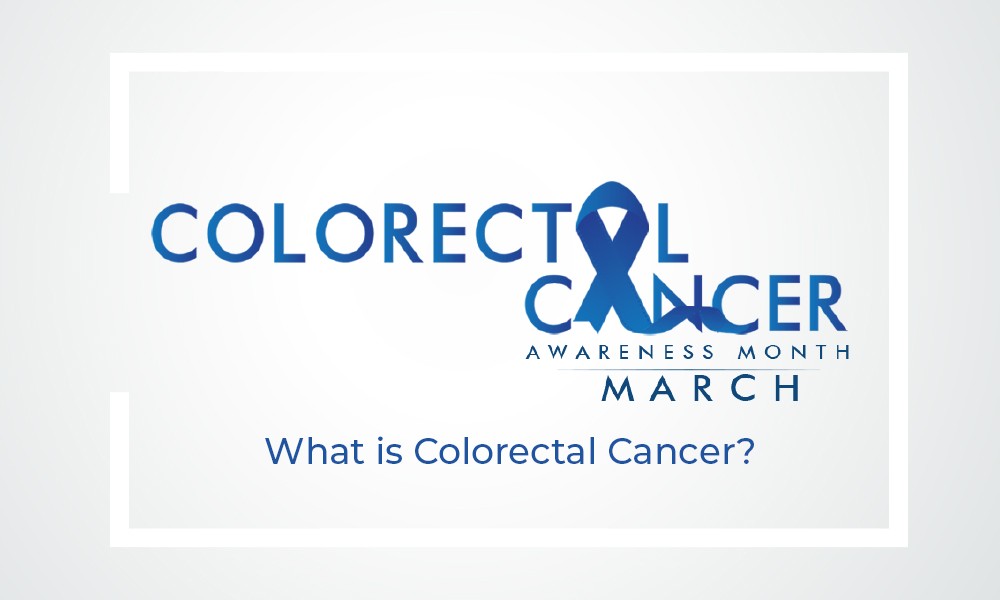No one is ever too young to get colorectal cancer
Colorectal cancer was once common among people over 50 years of age. According to new facts and figures rate of incidence is increasing among people younger than 50. It is not easy to read about the life-threatening disease but knowing about the red flags beforehand may help in early diagnosis. The earlier it is diagnosed the better is the prognosis.
What does colorectal cancer mean?
The colon is the terminal part of the large intestine and rectum connects it to the anus. Cancer that develops in the colon and rectum is called colorectal cancer. It starts in form of polyps. Polyps small abnormal flat bumps or mushroom-like outgrowths. These later evolve into carcinoma. If it diagnosed at the polyposis stage it can be easily treated with the most favorable outcomes.
In advanced stages, cancer can breach the bowel wall and spreads to lymph nodes and other organs like the liver, lungs, and other organs. This blog is determined to educate you more about colorectal cancer to create awareness and cure cancer within a lifetime.
Correlation of colorectal cancer with age
According to some recently done research, colorectal cancer is twice as common in young people. Registered cases of cancer are decreasing in older people. 10% of cases were registered with patients less than 50 years. In young people it is diagnosed at late stages and predominantly affects the distal part of the colon or rectum.
People with a family history of colorectal cancer or genetic predisposition must be screened before 50 years of age.
Learn some statistics
It is the second leading cause of death in both men and women in the US. It is the third commonest diagnosed cancer.
Average risk in men= 1 in 23 men
Average risk in women= 1 in 28 women can be diagnosed with this cancer.
Ethnicity can also be a contributing factor; colorectal cancer is most commonly diagnosed among African Americans with the highest mortality rate.
When is the time to visit the doctor?
The top five risk factors are:
- Old age
- Ethnicity
- Positive family history
- History of inflammatory bowel disease
- Genetic disorders (Lynch syndrome)
The commonest symptom of colorectal cancer is that there is NO symptom. Majority of young patients present with no history of any specific signs and symptoms.
If there is any change in bowel habits
If you are experiencing alternate diarrhea and constipation intermittently or constantly you must visit your doctor. You can have the sensation of incomplete emptying after defecation.
If your stool has blood in it
The blood could be fresh, bright red or the stool can be black or brick red.
Have you been experiencing abdominal discomfort?
In case of abdominal cramps, bloating and abdominal pain with other symptoms, it’s time to see your doctor.
Feeling fatigued with unexplained weight loss
The pet symptom of any cancer is feeling fatigued and tired along with weight loss in the past few months.
If you have a family history of colorectal cancer don’t wait for the symptoms to appear, the earlier you undergo screening for colorectal cancer the better the outcome.
How to manage the disease and its after-effects?
In the newly diagnosed patient stage of colorectal cancer directs further interventions.
What is the staging process?
Staging tells us to what extent cancer has spread in the bowel and surrounding areas.
| A | The only mucosa of the bowel wall is involved |
| B1 | Cancer has spread to the muscular part but the serosa(outermost lining) is not involved |
| B2 | Cancer has spread to serosa. |
| C1 | Muscle wall plus local lymph nodes |
| C2 | Serosa plus local lymph nodes |
| D | Spread to distant organ |
For stage A, Surgery is the main treatment option.
For stages B, C, and D, surgery with chemotherapy is preferable.
In stage D interventional radiological techniques are also applied.
After diagnosis, you can ask your doctor different questions like
- What is the stage of cancer and what is the best treatment option for this stage?
- You can ask about the side effects of chemotherapy.
- You can get information about the local cancer support groups.
- How much your work life will get affected by this treatment?
- Will it affect the fertility rate if you are of childbearing age?
- How many follow-ups and hospital visits are required?
Colorectal cancer and its psychological effects
Getting to know that you are suffering from cancer is disturbing news. You may feel your life is coming to an end and you don’t understand a thing. After denial and anger, you may feel depressed.
It is better to talk to family members and seek help for depression. Know that it’s normal to feel this way but you have to take care of yourself by engaging in daily exercise, meditation, and mindful practices. Musical therapies are also present.
Conclusion:
Colorectal cancer diagnosis can change life 360 degrees. Through this blog, determined to make this overwhelming process a lot better. Different questions you can ask and the decision to choose the best treatment option can be made easier with different guidelines provided here.





